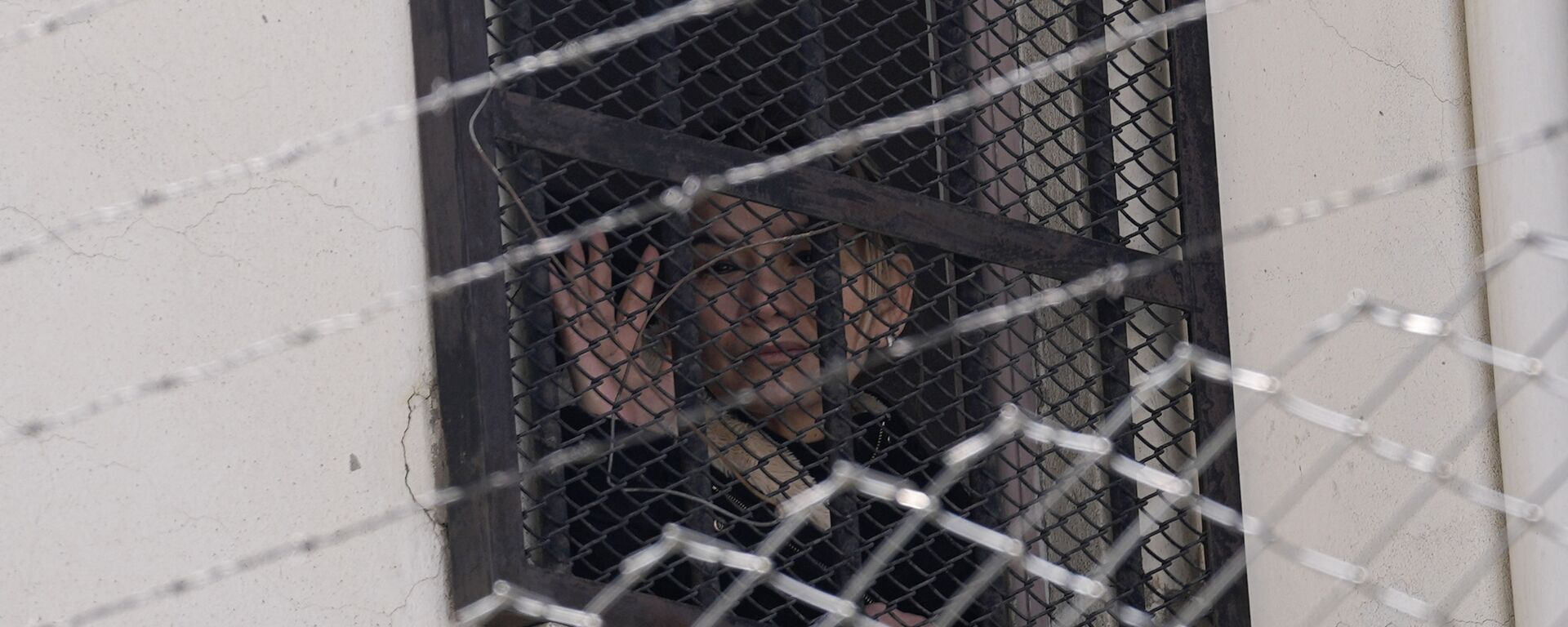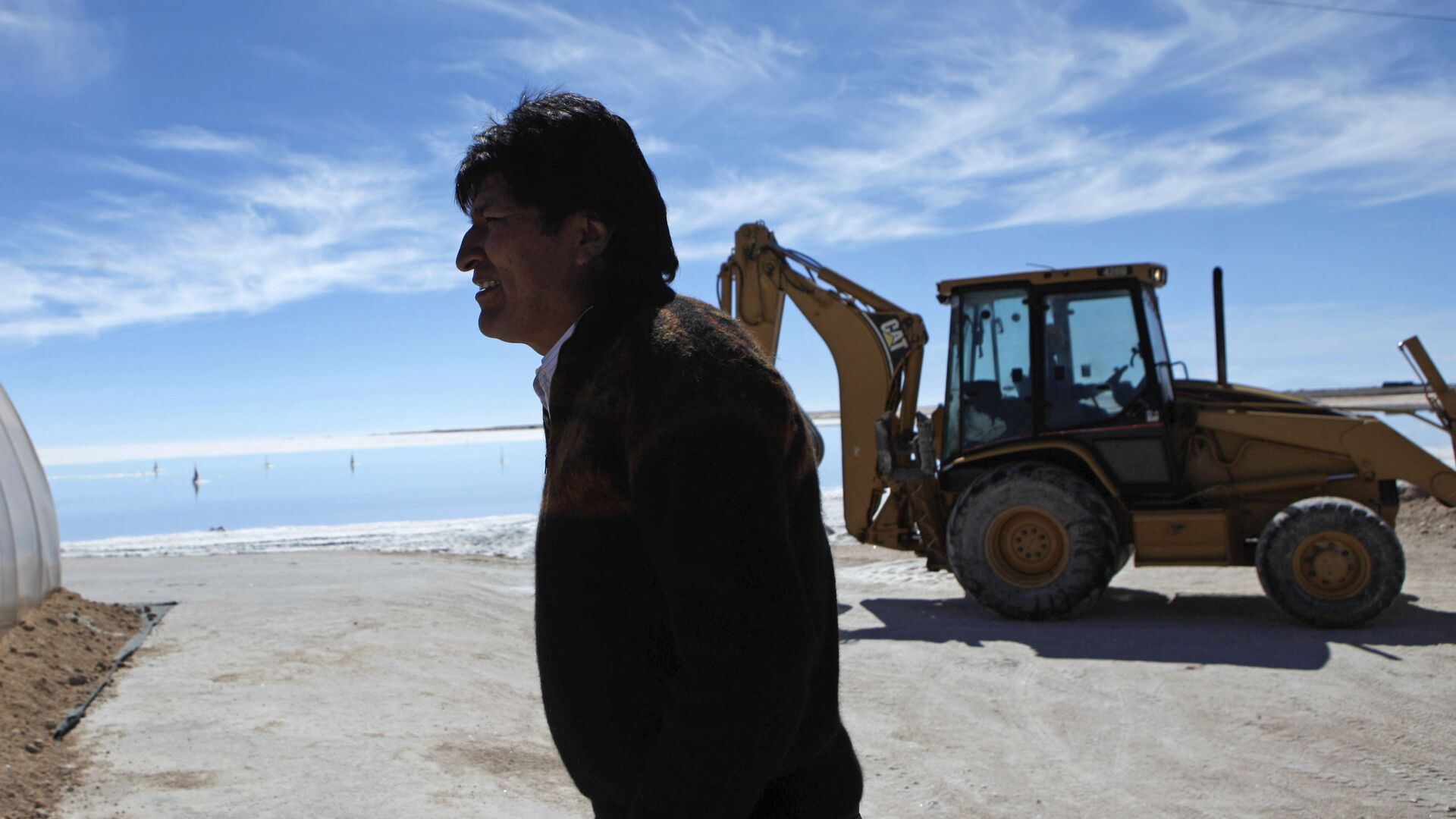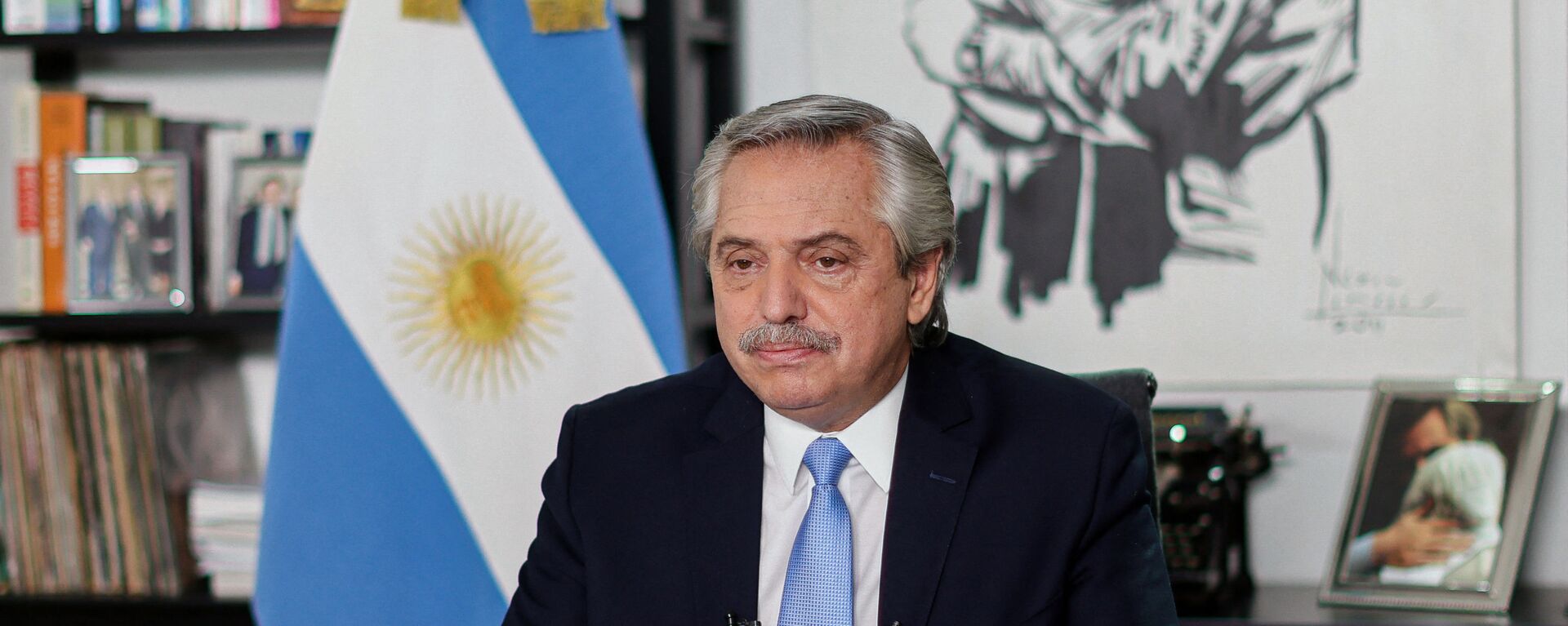https://sputnikglobe.com/20220516/evo-morales-urges-bolivia-to-withdraw-from-oas-as-more-presidents-look-to-skip-latin-american-1095531394.html
Evo Morales Urges Bolivia to Withdraw From OAS As More Presidents Look to Skip Latin American Summit
Evo Morales Urges Bolivia to Withdraw From OAS As More Presidents Look to Skip Latin American Summit
Sputnik International
The Organization of American States (OAS) is looking increasingly marginalized as Bolivia’s former president calls for the country to become the latest to... 16.05.2022, Sputnik International
2022-05-16T01:06+0000
2022-05-16T01:06+0000
2022-05-16T02:08+0000
evo morales
joe biden
alberto fernandez
andres manuel lopez obrador
jair bolsonaro
organization of american states (oas)
https://cdn1.img.sputnikglobe.com/img/07e5/03/0b/1082311169_0:266:3169:2048_1920x0_80_0_0_ced9931af36816335a80b1e3b18355f3.jpg
Bolivian ex-President Evo Morales suggested Sunday that his country should leave the Organization of American States, the international organization that Morales says “provoked” the 2019 coup d’etat against him.Morales’ denunciation of the international body comes as a growing number of Latin American Presidents have vowed to skip June’s upcoming OAS-organized Summit of the Americas in Los Angeles if the US refuses to allow the governments of Cuba, Nicaragua, and Venezuela to participate. The organization has long been criticized as a vehicle for the imperialist foreign policy of the US, which provides nearly half of its total budget. After Mexican President Andres Manuel Lopez Obrador said last week he would decline to attend if other nations were ‘excluded,’ Bolivian President Luis Arce quickly followed suit. And Reuters reported that Brazilian President Jair Bolsonaro is also considering skipping the summit in an apparent snub to US President Joe Biden.In April, regional efforts to transcend the OAS got a big boost when Nicaragua expelled the group from the country and seized their office, announcing plans to use the building to house a future “museum of infamy” dedicated to imperialist intervention in the country. Morales previously praised their decision to leave the OAS as a “dignified act.” The former Bolivian head of state–the country’s first indigenous president–has been one of the organization’s fiercest critics since the deadly 2019 coup d’etat in which he was overthrown by the country’s extremist opposition. Independent experts have since confirmed the OAS played a “major, decisive role” in facilitating that putsch, but neither the OAS nor its Secretary, Luis Almagro, have taken responsibility for those actions, despite repeated attempts by US Congress members to “finally see accountability and transparency from OAS” and the House of Representatives passing language directing the State Department to investigate its role.In the immediate aftermath of the coup, a number of US lawmakers wrote a letter asking whether the OAS’ Electoral Observation Mission in Bolivia considered “the potential effect on political violence of stability of putting forth what appears to be a hypothesis of fraud, without any evidence?” But they reportedly never heard back.In December, Argentine President Alberto Fernandez denounced the OAS’ ‘endorsement’ of the coup, and last June Mexican Foreign Minister Marcelo Ebrardaccused the group of “practically fomenting a coup.” Since then, Morales’ base of support since then has come to extend well beyond the government’s traditional left-leaning allies.Last year, El Salvador’s Vice President criticized the “factious” conduct of current OAS Secretary Luis Almagro in a speech before the Community of Latin American and Caribbean States (CELAC), before urging other states to look beyond the OAS for regional cooperation moving forward. Within the US establishment, worries about just such an eventuality appear to be growing. As an article published in Foreign Policy in early May noted with more than a hint of alarm, “the threat is not simply that this year’s summit will be a flop—yet another example of feckless US policy toward Latin America. Rather, the real risk is that—after nearly three decades of summitry—this year’s event may be interpreted as a gravestone on US influence in the region.”
https://sputnikglobe.com/20220418/argentina-to-restore-diplomatic-relations-with-venezuela-1094872911.html
https://sputnikglobe.com/20220209/arrested-ex-president-of-bolivia-anez-goes-on-hunger-strike---daughter-1092888618.html
Sputnik International
feedback@sputniknews.com
+74956456601
MIA „Rossiya Segodnya“
2022
News
en_EN
Sputnik International
feedback@sputniknews.com
+74956456601
MIA „Rossiya Segodnya“
Sputnik International
feedback@sputniknews.com
+74956456601
MIA „Rossiya Segodnya“
evo morales, joe biden, alberto fernandez, andres manuel lopez obrador, jair bolsonaro, organization of american states (oas)
evo morales, joe biden, alberto fernandez, andres manuel lopez obrador, jair bolsonaro, organization of american states (oas)
Evo Morales Urges Bolivia to Withdraw From OAS As More Presidents Look to Skip Latin American Summit
01:06 GMT 16.05.2022 (Updated: 02:08 GMT 16.05.2022) The Organization of American States (OAS) is looking increasingly marginalized as Bolivia’s former president calls for the country to become the latest to leave and more presidents ponder missing Biden’s Summit Of the Americas
Bolivian ex-President Evo Morales suggested Sunday that his country should leave the Organization of American States, the international organization that Morales says “provoked” the 2019 coup d’etat against him.
“In the face of US’ exclusion of the countries freed from their hegemony, how great would it be for Bolivia to withdraw from [the OAS],” Morales
asked on Twitter. Such a move, Morales noted, would be a ‘ratification’ of not only Bolivia’s “anti-imperialist position” and “the sovereignty, and independence of the State, but also the identity, dignity and freedom of the Bolivian people.”
Morales’ denunciation of the international body comes as a growing number of Latin American Presidents have vowed to skip June’s upcoming OAS-organized Summit of the Americas in Los Angeles if the US refuses to allow the governments of Cuba, Nicaragua, and Venezuela to participate.
The organization has long been
criticized as a vehicle for the imperialist foreign policy of the US, which provides nearly half of its total budget. After Mexican President Andres Manuel Lopez Obrador
said last week he would decline to attend if other nations were ‘excluded,’ Bolivian President Luis Arce quickly
followed suit. And Reuters reported that Brazilian President Jair Bolsonaro is
also considering skipping the summit in an apparent snub to US President Joe Biden.
In April, regional efforts to transcend the OAS got a big boost when Nicaragua expelled the group from the country and seized their office, announcing plans to use the building to house a future “museum of infamy” dedicated to imperialist intervention in the country. Morales previously praised their decision to leave the OAS as a “dignified act.”
The former Bolivian head of state–the country’s first indigenous president–has been one of the organization’s fiercest critics since the deadly 2019 coup d’etat in which he was overthrown by the country’s extremist opposition. Independent experts have
since confirmed the OAS played a “major, decisive role” in facilitating that putsch, but neither the OAS nor its Secretary, Luis Almagro, have taken responsibility for those actions, despite repeated attempts by US Congress members to “finally see accountability and transparency from OAS” and the House of Representatives passing language directing the State Department to investigate its role.
In the immediate aftermath of the coup, a number of US lawmakers wrote a letter asking whether the OAS’ Electoral Observation Mission in Bolivia considered “the potential effect on political violence of stability of putting forth what appears to be a hypothesis of fraud, without any evidence?” But they reportedly never heard back.

9 February 2022, 16:33 GMT
In December, Argentine President Alberto Fernandez denounced the OAS’ ‘
endorsement’ of the coup, and last June Mexican Foreign Minister Marcelo Ebrardaccused the group of “practically fomenting a coup.” Since then, Morales’ base of support since then has come to extend well beyond the government’s traditional left-leaning allies.
Last year, El Salvador’s Vice President criticized the “factious” conduct of current OAS Secretary Luis Almagro in a speech before the Community of Latin American and Caribbean States (CELAC), before urging other states to look beyond the OAS for regional cooperation moving forward.
“The CELAC can and must be an alternative mechanism that allows us to seek that dialogue with other regions of the world,” he said.
Within the US establishment, worries about just such an eventuality appear to be growing. As an article published in Foreign Policy in early May
noted with more than a hint of alarm, “the threat is not simply that this year’s summit will be a flop—yet another example of feckless US policy toward Latin America. Rather, the real risk is that—after nearly three decades of summitry—this year’s event may be interpreted as a gravestone on US influence in the region.”



